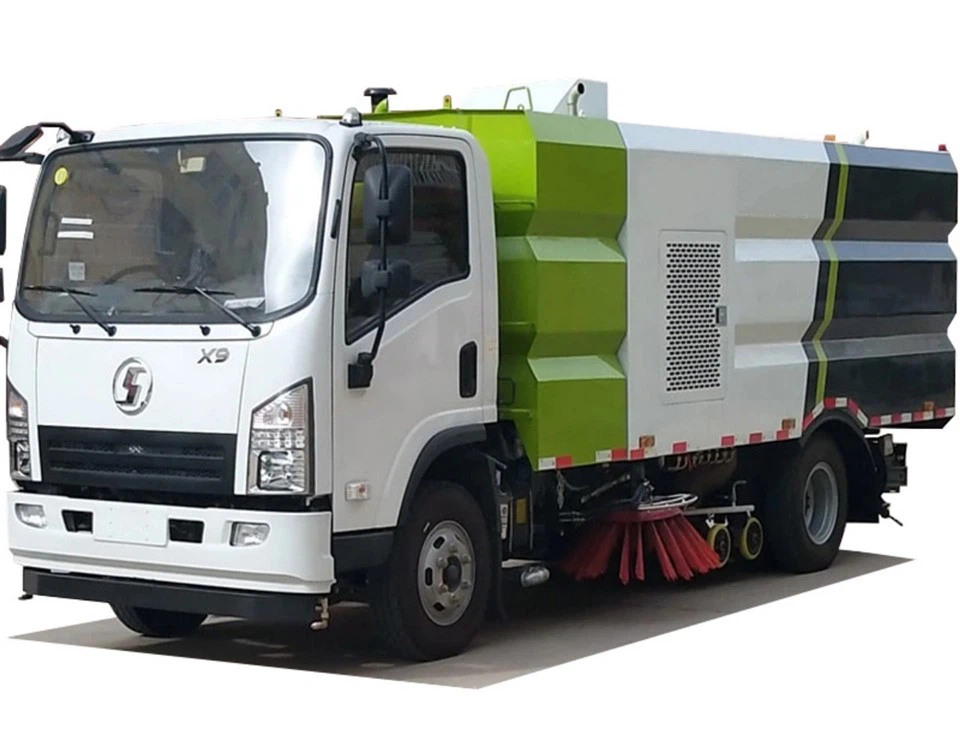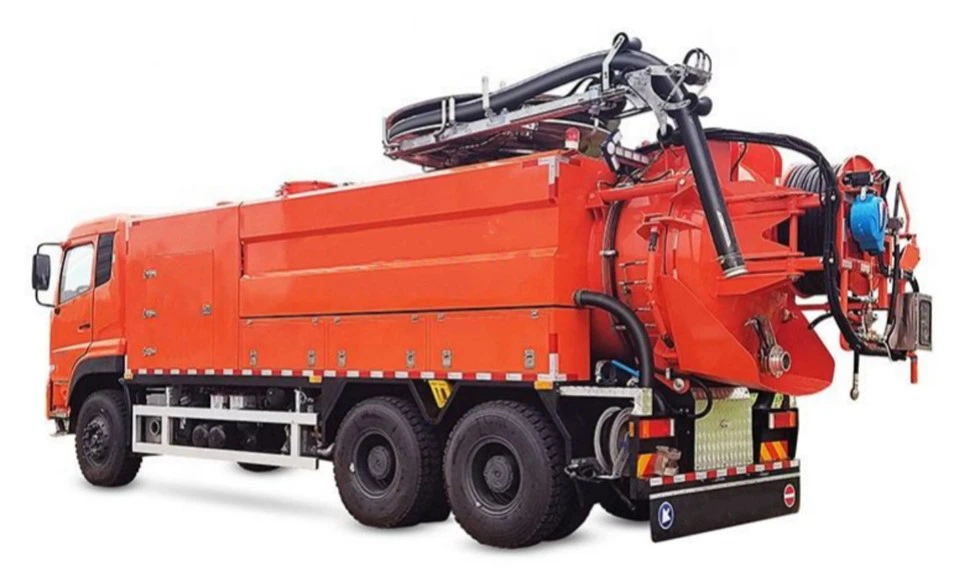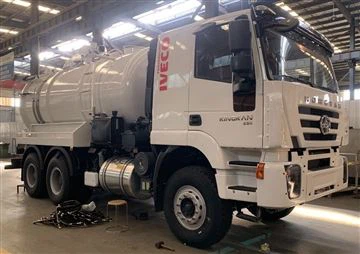Ultimate Guide to Vacuum Excavation Trucks for Sale

Introduction
In the world of construction and utility work, safety and efficiency are paramount. One innovative solution that has emerged to meet these needs is the vacuum excavation truck. This specialized vehicle utilizes advanced technology to perform safe digging in a variety of environments. This comprehensive guide will provide insight into everything you need to know about vacuum excavation trucks for sale, from their features and advantages to maintenance tips and purchasing considerations.
What is a Vacuum Excavation Truck?
A vacuum excavation truck, also known as a vac truck, is a powerful vehicle equipped with a high-powered vacuum system combined with a pumping system. It can safely excavate soil without damaging underground utilities, making it an indispensable tool for construction, plumbing, and utility maintenance companies.
How Does a Vacuum Excavation Truck Work?
The operation of a vacuum excavation truck is simple yet effective. The truck uses a vacuum system to remove soil and debris in a controlled manner. Here’s a step-by-step breakdown:
- Vacuum Creation: The truck’s powerful vacuum creates a negative pressure, drawing soil into the tank.
- Air and Debris Separation: The dirt goes through a filtration system that separates air from debris.
- Storage: The clean air is released, while the soil is stored in the tank for disposal or reuse.
Key Features of Vacuum Excavation Trucks
When considering a vacuum excavation truck for sale, it’s essential to understand the key features that define its performance and efficiency. Here are some of the critical specifications to look for:
1. Capacity
Vacuum excavation trucks come with different tank capacities. The size of the tank you need depends on the types of projects you typically undertake:
- Small Capacity: 500-800 gallons (ideal for residential projects)
- Medium Capacity: 800-1,200 gallons (suitable for commercial jobs)
- Large Capacity: 1,200+ gallons (best for large-scale construction and utility work)
2. Pumping Power
The pumping power affects how quickly and efficiently the truck can excavate. It is typically measured in cubic feet per minute (CFM). Common configurations are:
- High CFM (> 300): Suitable for heavy-duty applications.
- Medium CFM (200-300): Ideal for regular utility work.
- Low CFM (< 200): Best for smaller projects.
3. Vacuum Level
This refers to how effectively the truck can create suction. Generally, a higher vacuum level translates to better performance. Consider vacuum levels ranging from:
- Low (<15 Hg): Suitable for light excavation.
- Medium (15-25 Hg): Best for daily utility work.
- High (>25 Hg): Essential for challenging materials, such as clay or gravel.
Benefits of Using Vacuum Excavation Trucks
Employing vacuum excavation trucks in your work can offer significant benefits:
1. Safety
Vacuum excavation minimizes the risk of damaging underground utilities like gas, water, or electricity, which can lead to dangerous situations and costly repairs.
2. Efficiency
These trucks can complete excavation tasks faster than traditional methods, saving both time and labor costs.
3. Minimal Disruption
Because it removes soil effectively without damaging surrounding areas, vacuum excavation can reduce the need for additional repair work post-excavation.
4. Versatility
Vacuum excavation can be used in various applications, including trenching, potholing, and removing contaminants in soil cleanup efforts.
Factors to Consider When Purchasing a Vacuum Excavation Truck
Choosing the right vacuum excavation truck can be daunting. Here are some key factors to consider:

1. Project Requirements
Evaluate the types of excavation tasks you will typically undertake. Different projects may require different truck features.
2. Cost
Vacuum excavation trucks can range from $100,000 to $500,000 or more. Establish your budget beforehand and compare models within that range.
3. Brand Reputation
Consider well-known brands that offer reliable trucks with excellent customer service and support.
4. Warranty and Service Options
Review the warranty terms and availability of local service options to ensure your investment is protected.
5. Fuel Efficiency
Evaluate the fuel consumption of different truck models, as more efficient options can save money over time.
Different Types of Vacuum Excavation Trucks
There are various types of vacuum excavation trucks on the market, each catering to specific needs:
1. Combination Trucks
Combination trucks feature both vacuum and jetting capabilities, making them extremely versatile. They can be used for tasks from excavation to pipeline cleaning.
2. Hydro Excavation Trucks
Hydro excavation trucks utilize high-pressure water combined with vacuum suction, ideal for softening soil before removal, thus reducing damage to existing underground utilities.
3. Standard Vacuum Trucks
Standard vacuum trucks are primarily used for excavation and waste removal, suitable for general construction projects.
Practical Examples of Use Cases
Here are some real-life applications where vacuum excavation trucks have proven invaluable:
1. Utility Line Installation
When installing new utility lines, companies use vacuum excavation to dig precise holes without risking damage to existing infrastructure.
2. Potholing
Vacuum excavation is commonly used for potholing, where specific spots are excavated to locate and verify underground utilities before construction begins.
3. Environmental Cleanup
These trucks are used in soil remediation projects, where contaminated soil is extracted and safely disposed of.
4. Trenching for Fiber Optics

Communication companies often use vacuum excavation for trenching to install fiber optic lines with minimal surface disruption.
Maintenance Tips for Vacuum Excavation Trucks
Regular maintenance is crucial for keeping vacuum excavation trucks in optimal condition. Here are some essential tips:
1. Daily Inspections
Conduct routine inspections before and after operations. Check for leaks, tank cleanliness, and mechanical issues.
2. Regular Servicing

Follow the manufacturer’s service schedule. Regular servicing can prevent costly repairs in the long run.
3. Filter Cleanliness
Monitor and clean the filters to ensure efficient operation and vacuum effectiveness.
4. Oil Changes
Regular oil changes are essential for maintaining engine health. Always use oil that meets the manufacturer’s specifications.
5. Training Staff
Ensure that all operators are adequately trained in the truck’s operation, reducing mistakes that can lead to damage or safety issues.
Where to Buy Vacuum Excavation Trucks
You can find vacuum excavation trucks for sale through various channels:
1. Manufacturer Websites
Leading manufacturers often list their trucks for sale directly through their websites, providing detailed specifications and pricing options.
2. Online Marketplaces
Websites like Equipment Trader and Machinery Trader list both new and used vacuum excavation trucks, allowing for side-by-side comparisons of different models.
3. Local Dealerships
Visit local equipment dealerships that specialize in heavy machinery. You can often find demo models and qualified representatives to assist you.
4. Auctions
Online and local auctions can yield some excellent deals on used vacuum excavation trucks.
FAQ Section
1. What does a vacuum excavation truck cost?
The cost of a vacuum excavation truck can range broadly from $100,000 to $500,000 or more, depending on the size and features.
2. How much does a vacuum excavation truck weigh?
Vacuum excavation trucks typically weigh between 15,000 to 33,000 pounds, depending on their configuration and size.
3. Can a vacuum excavation truck work in rainy conditions?
While it is possible to operate a vacuum excavation truck in light rain, extreme weather conditions can impact performance and safety.
4. Is training required to operate a vacuum excavation truck?
Yes, proper training is essential for safe operation and to prevent damage to the truck and underground utilities.
5. Can vacuum excavation trucks be used for environmental cleanup?
Absolutely! Vacuum excavation trucks are extensively used in environmental cleanup efforts to safely remove contaminated soil.
6. What is the lifespan of a vacuum excavation truck?
With proper maintenance, vacuum excavation trucks can last anywhere from 10 to 15 years, or longer with regular servicing.
